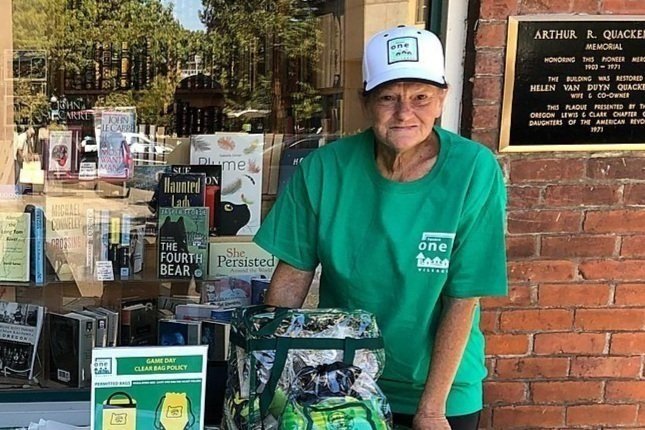Achieving financial independence, food security, & ecological health one community at a time
MAPLE Oregon, serving Eugene and Portland, allies with very low-income, unhoused communities to strengthen them econonically and ecologically, so residents can regain housing, enjoy access to community gardens, and flourish together.
With Everyone Village Eugene (E1V)—https://everyonevillage.org/
Everyone Village (E1V) is a 70+ person transitional shelter community located in West Eugene. Wtih E1V residents, we have co-designed a matched savings and financial planning program to help residents achieve their own goals while regaining housing.
We are also working closely with E1V residents, staff, and several partners to design a network of smaller, permanent housing cooperatives with access to arable land, and to ensure that residents can afford to transition together into these cooperatives to maintain vital connections to each other for mutal support.
With Emerald Village Eugene (EVE)—https://www.squareonevillages.org/emerald
Prior to partnering with E1V, we worked with residents of Emerald Village Eugene (EVE), a permanent tiny-house cooperative built by SquareOne Villages. With EVE residents we co-designed:
a greenhouse and commuinity garden
several microbusinesses
a savings and loan group
pathways to income generation
a robust community fund
a process for the community to manage that fund on their own
ways to grow that fund with MAPLE’s continuing support.
With the Community of p:ear in Portland, Oregon—https://www.pearmentor.org/
Currently, we are expanding operations to Portland, Oregon, where we are co-designing an economic strengthening pilot program with p:ear, a creative non-profit that serves homeless youth in downtown Portland.
Why we ally with local communities across very different cultures worldwide—i.e. in Uganda, Chile, and Oregon?
Through MAPLE’s cross-cultural approach, we learn pathways for economic and ecological strengtheng and resilience from diverse communities around the world and share these pathways across our branches. This process enables community allies to maintain vital traditions and values while innovating with knowledge of resilient practices learned from others.
The basic assumption we hold across branches is that true self-governance depends upon the capacities for communities to fund their own initiatives while also retaining access to arable land and regenerating their local ecologies.
maple oregon Community-Based Programs
Building Skills & Generating Income





